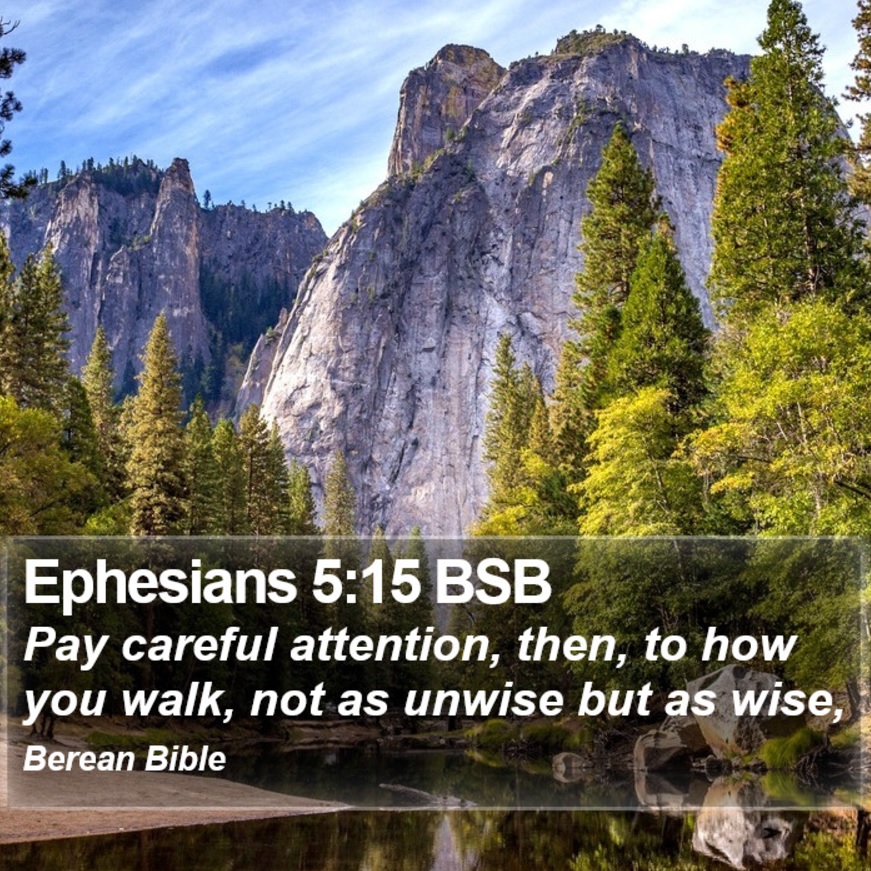“Go therefore and make disciples of all the nations…teaching them to observe all that I commanded you; and lo, I am with you always, even to the end of the age” (Matthew 28:19-20, NASB).
——————–
1) “The Proper Order” or “The Prescribed Way” (Bryan Gibson)
2) The “Sons of God” in Genesis 6 (Joe R. Price)
3) Walk Carefully (Gene Samford)
——————–

-1-
“The Proper Order” or “The Prescribed Way”
Bryan Gibson
David wanted to bring the ark of the covenant back to Jerusalem, something his fellow-Israelites agreed was the right thing to do (1 Chronicles 13:1-4). And so they went to Kirjath Jearim, where the ark had been for twenty years (1 Samuel 7:2), and began transporting it to Jerusalem. During this trip, “David and all Israel played music before God with all their might” (1 Chronicles 13:8). So far, so good.
It wasn’t long, though, before they ran into serious trouble. “And when they came to Chidon’s threshing floor, Uzzah put out his hand to hold the ark, for the oxen stumbled. Then the anger of the LORD was aroused against Uzzah, and He struck him because he put his hand to the ark; and he died there before God” (1 Chronicles 13:9-10). The law of Moses was clear—no one could “touch any holy things, lest they die” (Numbers 4:15). Turns out, Uzzah’s error was not the only error they made. They put the wrong people in charge of transporting the ark, and they were transporting it the wrong way. The Levites were supposed to carry it on their shoulders (instead of a cart), using poles inserted through rings on the sides of the ark (Exodus 25:12-15; Numbers 4:1-15; 1 Chronicles 15:15). Their failure is summarized in 1 Chronicles 15:13: “The LORD our God broke out against us, because we did not consult Him about the proper order.” The NIV says, “We did not inquire of him about how to do it in the prescribed way.” They should have gone to the law to find out exactly how they were supposed to do it.
The lesson in this story is crystal clear. God desires we do things His way, that we consult Him about the “proper order,” or “prescribed way.” Claiming something is done “in His name,” or, “to His glory,” doesn’t make it so. God is a stickler for doing things according to His will (Matthew 7:21-23; 12:50).
For example, on the question, “What must I do to be saved?” look to God, to the New Testament, for the “proper order,” or “prescribed way.” The full answer won’t be found in one “silver bullet” passage. John 3:16 is a wonderful passage, but it doesn’t give all the details. Consider everything God says on the subject; that’s the only way to find His answer.
On the worship, work, and organization of the local church, same principle. Please don’t make the mistake of saying, “there is no prescribed way.” The New Testament provides a clear pattern for each one of these. The Israelites learned their lesson. They eventually did move the ark back to Jerusalem, and this time did it God’s way (1 Chronicles 15:14-16:1). Here’s hoping we learn the same lesson—before it’s too late!
— Via Plain Words from God’s Word, September 6, 2024
——————–

-2-
The “Sons of God” in Genesis 6
Joe R. Price
Who were the “sons of God,” taking as their wives the “daughters of men” in Genesis 6:1-8? What can we possibly learn from this Bible text?
The context of Genesis 6 leads us to the conclusion that the “sons of God” mentioned in Genesis 6:2 were the descendants of Seth, the son of Adam (Gen. 4:25).
In Genesis 4 we are introduced to two families: (1) Cain and his descendants, and (2) Seth and his descendants. Cain’s descendants followed the pattern set by their father Cain and continued to live farther and farther away from God (Gen. 4:16-24). In contrast, Seth and his family “began to call on the name of the Lord” (Gen. 4:26). Genesis 5 records this family tree all the way to Noah (Gen. 5:32).
Genesis 6:1-8 tells us how the world became so wicked and vile that God determined to destroy sinful man (which He did with the flood). This occurred because those whose ancestors had previously “called upon the name of the Lord” began to compromise and cohabit with the “daughters of men” (that is, the men and their families who did not call upon the name of the Lord). They abandoned their spiritual heritage and “took wives for themselves of all whom they chose” (Gen. 6:2). When men began to be driven by their own lustful desires rather than the word and will of God they were influenced by the evil they grew to love. The result was a world full of violent attackers, robbers and tyrants (Gen. 6:4 says “giants” which is translated from a word which means “to fall upon” or attack) rather than one filled with people who “called upon the name of the Lord.” These men made a name for themselves among other men, but not in eyes of the Lord (Gen. 6:4). It was Noah, a just man who walked with God who caught God’s attention and obtained God’s favor (Gen. 6:8-9).
The divine reaction to the wickedness of men was one of grief, sorry and ultimately judgment (Gen. 6:3, 5-7). He determined to destroy the earth and accomplished their punishment with the great flood (Gen. 6:13, 17; 7:1ff).
There is no compelling reason from the immediate context or the rest of the Bible to convince us that the “sons of God” in Genesis 6:2 were heavenly creatures instead of human beings. Such is the stuff of human fancy and fiction. There is no basis for this view in the inspired text. The “angels who sinned” in 2 Peter 2:4 cannot be the “sons of God” of Genesis 6:2 because those angels were “cast down to hell and delivered into chains (pits, ASV) of darkness.” They were not sent to the earth (see also, Jude 6).
So, the “sons of God” in Genesis 6:2 were men who did not remain holy and separated from the sin that was around them. Instead, they married women who influenced them to forsake righteous living. The result was mankind’s ruin and destruction.
There are clear lessons for us to learn from this sad period in human history:
1) “Be not deceived: Evil companionships corrupt good morals” (1 Cor. 15:33).
2) The person one chooses to marry will influence him or her for good or evil, so wisely choose a mate who will help you live in God’s favor (Prov. 18:22; 1 Pet. 3:1-7).
3) God expects us to live holy lives, separated from sin: “…as He who called you is holy, you also be holy in all your conduct, because it is written, ‘Be holy, for I am holy’” (1 Pet. 1:15-16).
4) God will punish sin, so we must be careful to live in truth and holiness (Rom. 1:18; 2:1-11).
— Via The Spirit’s Sword, Volume IV: Number 50, Feb. 18, 2001
——————–

-3-
Walk Carefully
Gene Samford
Psalm 1:1
1. Blessed is the man
Who walks not in the counsel of the ungodly,
Nor stands in the path of sinners,
Nor sits in the seat of the scornful;
The temptation is always there to compromise what we know to be God’s will — and one of the most effective inducements offered by the devil is, “Everybody else is doing it.” Overcoming this temptation is not as difficult as some might imagine, though. All it takes is “walking carefully” — watching where we “put our steps.” In other words, being certain we keep to the “straight and narrow path” which leads to Heaven.
Easily said, but how do we do this? By making God’s word a familiar part of our lives. As we study and meditate on it, it becomes our whole direction.
Psalm 1:2
2 But his delight is in the law of the Lord,
And in His law he meditates day and night.
— via Viewpoint from the Valley Grove church of Christ, December 4, 2022
——————–
The Steps That Lead to Eternal Salvation
1) Hear the gospel — for that is how faith comes (Rom. 10:17; John 20:30-31).
2) Believe in the deity of Jesus Christ, the Son of God (John 8:24; John 3:18).
3) Repent of sins. For every accountable person has sinned (Romans 3:23; Romans 3:10), which causes one to be spiritually dead (Ephesians 2:1) and separated from God (Isaiah 59:1-2; Romans 6:23). Therefore, repentance of sin is necessary (Luke 13:5; Acts 17:30). For whether the sin seems great or small, there will still be the same penalty for either (Matt. 12:36-37; 2 Cor. 5:10) — and even for a lie (Rev. 21:8).
4) Confess faith in Christ (Rom. 10:9-10; Acts 8:36-38).
5) Be baptized in water for the remission of sins (Mark 16:16; Acts 2:38; 22:16; 1 Pet. 3:21). This is the final step that puts one into Christ (Gal. 3:26-27). For from that baptism, one is then raised as a new creature (2 Cor. 5:17), having all sins forgiven and beginning a new life as a Christian (Rom. 6:3-4). For the one being baptized does so “through faith in the working of God” (Col. 2:12). In other words, believing that God will keep His word and forgive after one submits to these necessary steps. And now as a Christian, we then need to…
6) Continue in the faith by living for the Lord; for, if not, salvation can be lost (Matt. 24:13; Heb. 10:36-39; Rev. 2:10; 2 Pet. 2:20-22).
——————–
Tebeau Street
CHURCH OF CHRIST
1402 Tebeau Street, Waycross, GA 31501
Sunday: 9 a.m. Bible Classes and 10 a.m. Worship Service. Congregational Song Service: 5 p.m. for every first Sunday of the month.
Wednesday: 7 p.m. Bible Classes
evangelist/editor: Tom Edwards (912) 281-9917
Tom@ThomasTEdwards.com
https://thomastedwards.com/go/all.htm (This is a link to the older version of the Gospel Observer website, but with bulletins going back to March 4, 1990.)






